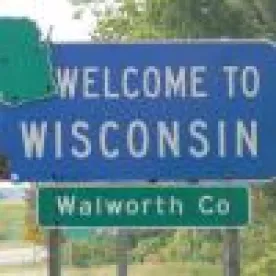For nearly two decades, Rustic Retreats Log Homes, Inc. was the exclusive builder of Pioneer Log Homes in Wisconsin.1 Under the parties’ written distributorship agreement, Pioneer would provide customer leads for Rustic to pursue and then would manufacture, at its facility in British Columbia, Canada, the customer’s custom-made log home. In addition to being the local face of Pioneer, Rustic would purchase each log home from Pioneer, arrange for delivery and other logistics, and then build (reassemble) the log home on the customer’s property. While Rustic enjoyed exclusivity over a roughly five-state area, there was no express requirement in the agreement that Rustic represent only Pioneer.
In 2016, allegedly motivated by Pioneer’s pricing changes, Rustic began siphoning leads provided by Pioneer to one of Pioneer’s competitors. This went on surreptitiously for almost three years, until one of Pioneer’s key customers notified them of the scheme. Without notice (as provided in the agreement), Pioneer terminated Rustic and informed customers that Rustic was being replaced as the builder of their homes. In response, Rustic sued Pioneer in Wisconsin State Court for, among other things, wrongful termination under the Wisconsin Fair Dealership Law (WFDL). Pioneer removed the case to federal court in Wisconsin and then counterclaimed. Discovery ensued, which culminated in the parties’ advancing competing motions for summary judgment.
On June 17, 2021, the court (Judge Joseph) entered its opinion. As to Rustic’s WFDL claim – its lead claim – the court zeroed in on the threshold question: On the summary judgment record, could a reasonable jury conclude that the requisite “community of interest” existed between Rustic and Pioneer? If a jury could not so find, Rustic had no WFDL claim and likely no case.
The court explained that a community of interest exists where the putative dealer and grantor are so intertwined that ending the business relationship would have significant financial consequences for the dealer. Highlighting key state and federal court precedent, including the standard articulated in Ziegler Co. v. Rexnord, Inc., 139 Wis. 2d 593, 606, 407 N.W.2d 873, 879–80 (1987), the court focused on two key factors: (1) the percentage of revenues and profits the alleged dealer derives from the grantor and (2) the alleged dealer’s investments in the relationship, especially those that are grantor-specific and thus “sunk.”
-
As to the percentage of revenues as profits, Rustic claimed that it derived more than 95% of its gross revenues and profits in a 16-year period from selling Pioneer products. However, the court pointed to evidence in the record showing that Rustic sold no Pioneer homes in 2018 and 2019 and was still able to bring in revenue without any Pioneer sales, because it was not restricted to selling only Pioneer products. This undermined Rustic’s argument regarding financial interdependence.
-
As to sunk costs, the court was unpersuaded that there were any. Rustic was able to sell the model home and billboard it had built to promote Pioneer. As for trucks, tools, and equipment, the court found there was no evidence in the record that they were Pioneer-specific and thus not recoupable.
Ultimately, the court was comfortable enough with the facts to dismiss the WFDL claim. Pioneer did not have Rustic “over a barrel,” as evidenced by Rustic’s semi-successful relationships with competing log home manufacturers in the years immediately preceding termination. Therefore, there was not a community of interest between the parties, and thus the WFDL did not apply.
Key Takeaways
-
For WFDL claims, venue is often outcome-determinative. Historically, the Seventh Circuit has been vocally skeptical of the WFDL. This has made district courts much more willing to wade into the community-of-interest factors, frequently resolving the question of applicability against the putative dealer. Wisconsin state courts, on the other hand, more often rely on a jury to determine the WFDL’s applicability given a colorable argument. Obviously, this difference in approach can have major strategic implications for litigants.
-
Fresh versus stale. Even though the application of the WFDL depends upon the parties’ relationship as a whole, the court’s opinion in Rustic shows that recent facts about a relationship are generally given more weight than distant facts. It is true to say, “Once a WFDL dealer, not always a WFDL dealer.”
-
No exclusivity without exclusive dealing. As for a business takeaway, Pioneer would have been in a far better position had the distributor agreement expressly required exclusive dealing, i.e., prohibited Rustic from representing Pioneer’s competitors. Of course, this may not have stopped Rustic from siphoning leads, but Pioneer’s argument for “good cause” would likely have been strong enough to convince Rustic not to pursue a wrongful termination claim.
1 Rustic Retreats Log Homes, Inc. v. Pioneer Log Homes of British Columbia Inc., No. 19-CV-1614, 2021 WL 2474112 (E.D. Wis. June 17, 2021).




 />i
/>i
